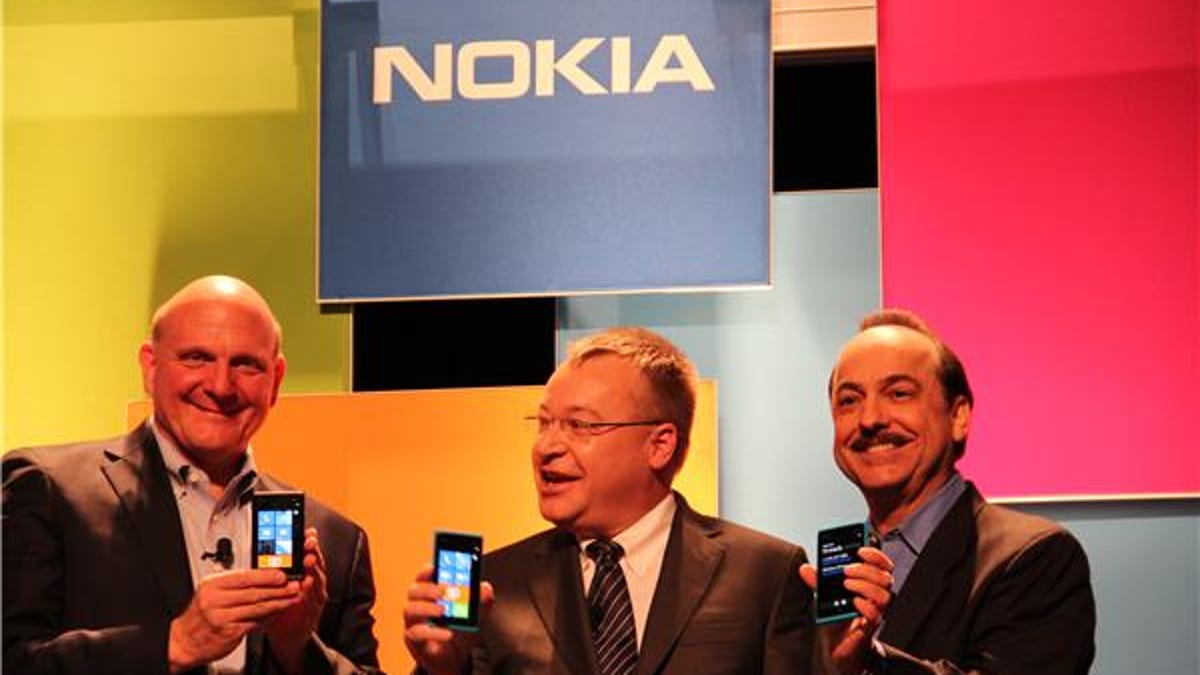Windows Phone does quality over quantity at CES
Only two smartphones bore the Windows Phone operating system at CES, but who cares when 100 percent of your products are strong? CES may portend good things to come Microsoft's way in 2012, but plenty of hard work lies ahead.

LAS VEGAS--2012 may mark Microsoft's last major CES keynote and presence, but with two successful Windows Phone announcements, it's going out with a bang.
CNET named both the HTC Titan II and the Nokia Lumia 900 finalists for the Best of CES award in the smartphone category, both supporting 4G LTE. Out of four total candidates, the Lumia 900 took the prize.
Much has changed in a year. Last CES, the newly minted Windows Phone operating system had just launched, completely overhauling the convoluted, bloated Windows Mobile operating system that proved incapable of surviving in a post-iPhone world.
Although the community of mobile press journalists widely appreciated Windows Phone's simple, straightforward interface and unique design, the first wave of hardware mostly underwhelmed. Software oddities like absent support for landscape mode, no multitasking, no copy/paste, and a piddly supply of apps soured our taste for the new and the bold.
Just hang on, Microsoft told us over and over again, stressing that it takes time to gain your footing before you can grow.
Finally, the pieces are coming together and the risk is paying off. The fall release of the Windows Phone Mango 7.5 OS update fixed several (but not all) software issues. The hardware is improving, too, with front-facing cameras and newfound support for 4G LTE. Even the app marketplace is up to 50,000 titles.
With all eyes on Nokia's re-entry into the U.S. market in a major way, the reception of the high-end Lumia 900 phone has become an important augur for Windows Phone's success as a whole. For example, the Lumia 900 has been called a hail Mary, a key piece in the transition from uncertainty to triumph. The Lumia 900 and other phones like it could push as many as 37 million Nokia devices out the door.
Win carriers, win sales reps
There's little doubt that Microsoft just won a battle at CES, but much must be done if Windows Phone is to make a lasting impact--and Microsoft knows it. "2012 is going to be a big year for us," Greg Sullivan, senior product manager for Windows Phone, told CNET in an interview, adding that Microsoft's strategy going forward will require extreme focus.
In addition to helping OEM partners manufacture new phones, Microsoft has a list of problem areas it's got to tackle. Multiplying language support, expanding and improving its cloud services, and steadily stocking its app store with high-quality programs are among them.
There's also the tricky business of selling the devices. AT&T continues to be Microsoft's staunchest U.S. supporter, offering the highest number of Windows phones. It's no accident that both the Titan II and Lumia 900 champion AT&T's 4G LTE network.
T-Mobile isn't too far behind, but Sprint and Verizon have one Windows Phone apiece. Microsoft and its manufacturer partners will have to pierce those membranes to get a lock on the market. (Read Verizon's stance on Windows Phone here.)
Microsoft's Sullivan also acknowledged another weak spot. "We know there's a lot we have to do in stores," he said, sharing a personal anecdote where his sister purchased an Android phone in part at the behest of a sales representative--not an uncommon anecdote.
Last week a report surfaced that AT&T's sales associates will earn commission for selling Windows phones, a statement that Sullivan didn't think was necessarily true in the U.S. based on AT&T's commission structure. AT&T was not immediately available for comment or confirmation.
For the time being, Microsoft's short-term sales tactics and long-term strategy fine-tuning can wait. This week it's all about celebrating the positive reception to its two handsets, and the knowledge that although Microsoft will no longer swallow up a large swatch of the Central Hall at CES, this isn't by any means the last of Microsoft Windows Phone presence at at the show.
In fact, it's just the beginning.

